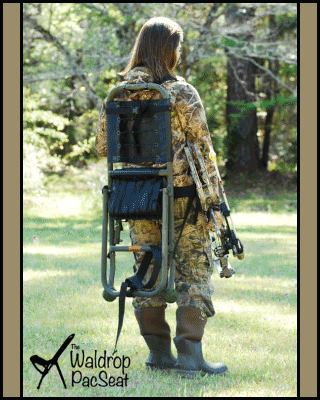(Lansing) – The Governor of Michigan gave hunter recruitment in her state a shot in the arm today when she signed two bills designed to boost the number of new hunters entering the field.
Gov. Jennifer Granholm today signed HB 5192 and SB 1105. Both bills are part of Families Afield, a program designed by the U.S. Sportsmen’s Alliance (USSA), National Shooting Sports Foundation (NSSF) and National Wild Turkey Federation (NWTF) to recruit young hunters into the sport by lowering or eliminating unnecessary age restrictions.
Senate Bill 1105, sponsored by Sen. Michelle McManus, R-Leelanau,
co-chair of the Michigan State Sportsmen’s Caucus, creates an apprentice hunting license which allows people to be introduced to hunting under direct supervision of a licensed adult hunter before completing hunter education. To become fully licensed and hunt alone, the new hunter must complete a hunter education course.
House Bill 5192, sponsored by Rep. Scott Hummel, R-DeWitt, lowers the big game hunting minimum age from 14 to 12 and the small game hunting minimum age from 12 to 10.
Under the two new laws, an experienced hunter can introduce a person who has not completed hunter education to small game hunting at the age of 10 and big game hunting at the age of 12. The new hunter must acquire an apprentice hunting license and hunt under the direct supervision of the licensed experienced hunter. However, if the new hunter has completed hunter education, he or she may now acquire a license to hunt small game at the age of 10 and big game at the age of 12.
“We are excited that a state with such a rich hunting heritage as Michigan has passed Families Afield legislation,” said Rob Sexton, vice president for government affairs for the USSA. “Governor Granholm, Senator McManus, Representative Hummel and the rest of the Michigan legislature are to be commended.”
The Youth Hunting Report, commissioned by the USSA, NSSF and NWTF, found that states which permit parents to decide when their children begin to hunt, and states which allow potential hunters to try hunting under the watchful eye of a mentor before completing a hunter education course, experience better recruitment and retention of new hunters. More importantly, these states produce safety statistics that are better than states that place high restrictions on age and hunter education, as well as under what conditions a new hunter can legally enter the field.
Before the passage of today’s bills, Michigan was second only to New York as the most restrictive state in the country in terms of age limits on when a new hunter could start hunting.
Michigan joins Pennsylvania, Ohio, Minnesota, Illinois, Utah and Mississippi as states which have passed Families Afield legislation. Like these states, Michigan has a rich hunting heritage, yet hunter recruitment is waning due to restrictive regulations placed on the ages at which a person can begin to hunt. Families Afield gives parents the opportunity to decide when their child is ready to hunt, rather than have the government set an arbitrary age minimum.




















